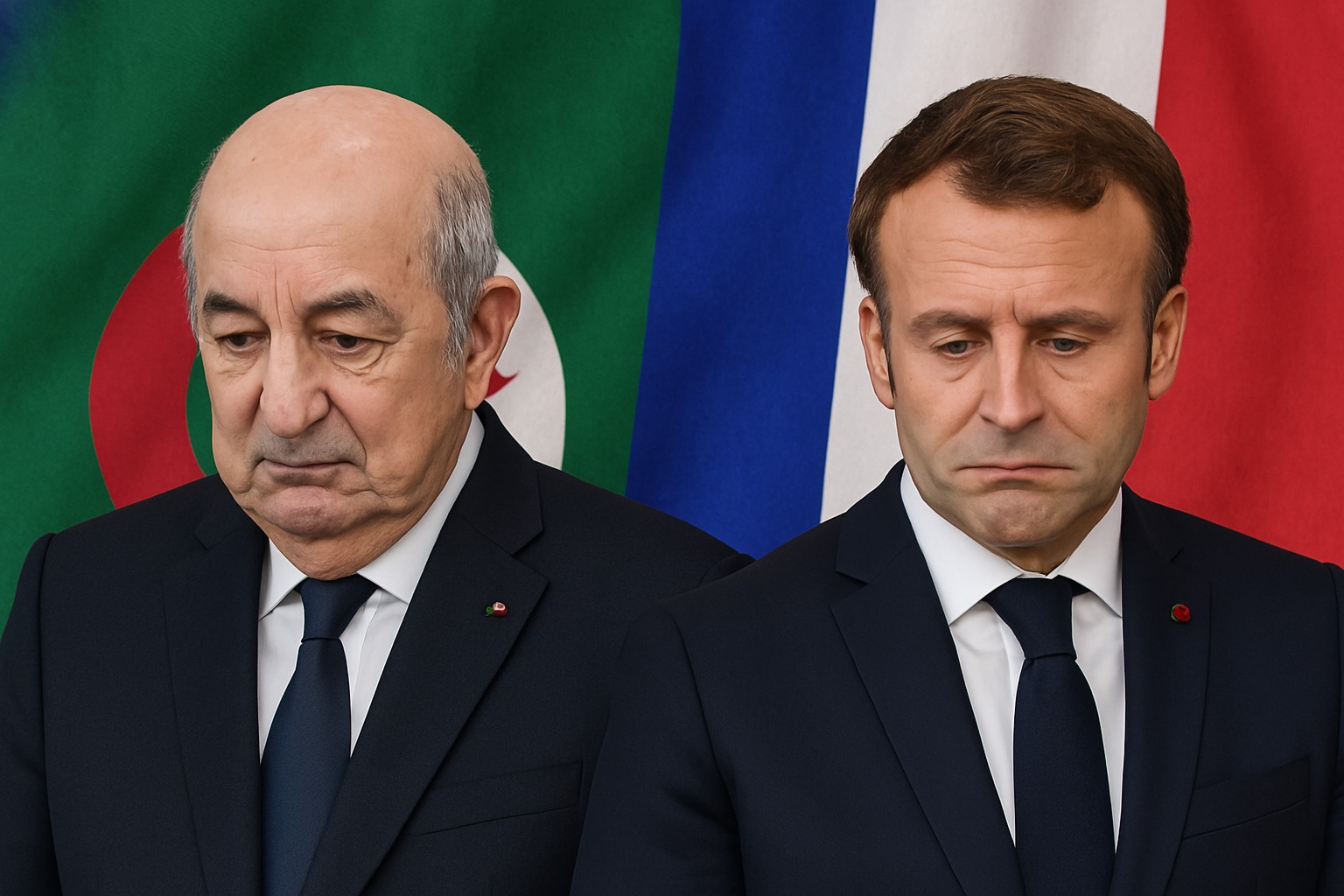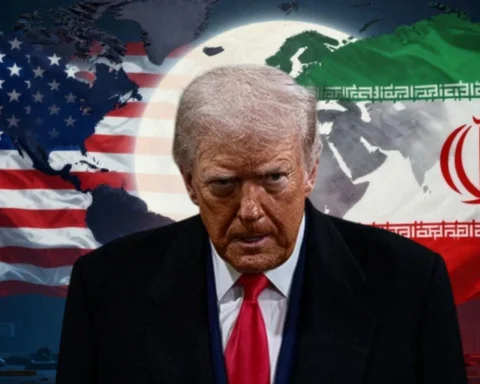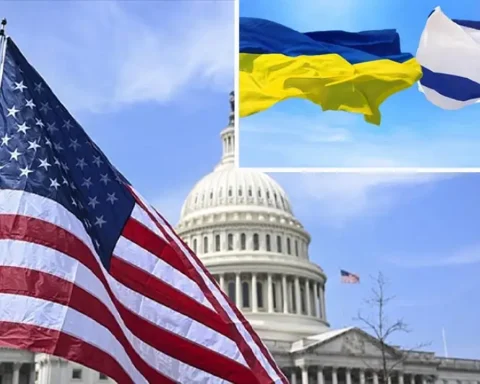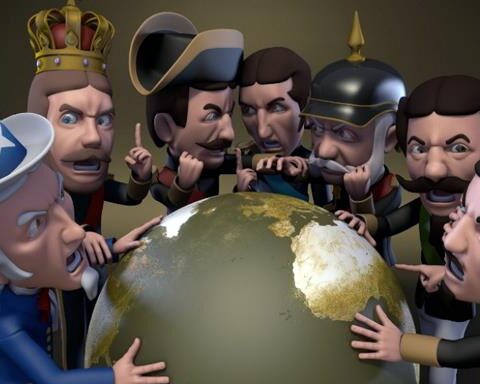It is said, “each unhappy family is unhappy in its own way,” and so it is with France and Algeria.
Relations between France and Algeria have recently deteriorated due to a combination of diplomatic disputes, immigration policies, and historical grievances.
France’s 132-year rule of Algeria, ending in 1962 after an eight-year war of independence, still shapes relations between Paris and Algiers. Algeria has long sought apology for colonial-era wrongs and reparations for nuclear weapons tests conducted in the Sahara Desert, while France has been reluctant to fully apologize to avoid antagonizing the descendants of the colonists (and also probably to avoid financial liability).
Algeria was not a colony or a protectorate, but a part of Metropolitan France in the Third through Fifth Republics. France had to retain Algeria at all costs as it had just suffered defeat in French Indochina in 1954, and needed the land as a gateway to France’s possessions in Africa, and for the natural resources. Today, the relations between the two countries are strained by many factors:
Western Sahara Dispute
The fuse was probably lit in July 2024, when French President Emmanuel Macron announced France supported Morocco’s autonomy plan for the Western Sahara. In October, Macron traveled to Rabat and told Morocco’s parliament France would support Western Sahara autonomy under Moroccan sovereignty, angering Algeria, which backs the Sahrawi independence movement.
France is in the same place it was in 1962. It is facing loss of influence, in Africa this time, as former colonial territories Mali and Senegal bid adieu to French troops and so must shore up support in the rest of the continent via Western Sahara and Morocco.
In February 2025, France’s culture minister and the speaker of the French senate visited the Western Sahara, and in response Algeria froze ties with French Senate.
Immigration Tensions
France has accused Algeria of refusing to accept deported Algerian nationals, leading to strained relations over immigration policies.
A deadly February knife attack carried out by an Algerian national, whom French authorities had attempted to deport multiple times, has become a trigger point, and in March Algeria refused to accept 60 Algerian nationals, an expulsion requested “as a priority” by the French interior ministry.
In February, an Algerian TikTok influencer residing in France on a temporary residency permit was charged with “advocating an act of terrorism,” and four other Algerian TikTok-ers were arrested for inciting violence.
The Minister of Interior, Bruno Retailleau (“I have three priorities: restoring order, restoring order, restoring order.”) violated the agreed protocols with Algeria and used the fast-track procedure for expelling illegal immigrants to expel Algerians with valid France residency visas. Algerians that appealed to French courts have defeated the expulsion orders.
France threatened to suspend visa exemptions for Algerians with diplomatic passports, and said it would “reexamine” 1968 migration pact with Algeria which made it easier for Algerians to reside in France, though France is unlikely to rescind the pact as that will likely doom any chance for successful deportations. Algeria will then refer the 1962 Evian Accords which worked to Algerians’ advantage: “In a form of continuity with the colonial period, freedom of movement and permission to settle was guaranteed, while Algerians benefited from the same rights as the French, apart from political rights.”
In a conciliatory gesture, the French interior ministry issued temporary visas to foreign imams due to shortages during Ramadan celebrations. President Macron took the occasion of Eid al-Fitr to phone Algerian President Abdelmadjid Tebboune for some damage control, and the Minister of Justice, a former Minister of the Interior, was dispatched to Algiers to try to patch things up.
Diplomatic Incidents
Algeria has summoned the French ambassador several times over issues like planned military exercises with Morocco, the low rents paid for French diplomatic properties in Algeria, and poor treatments of Algerian passengers at Paris airports. The ongoing tensions were no doubt aggravated by the investigation of two French government employees, both French-Algerian nationals, suspected of spying for Algeria.
In March, Algeria banned all French aid to private schools,
In September 2021, Algeria closed its airspace to Moroccan civil and military aircraft, and French military aircraft in response to President Macron’s claims that Algeria was misrepresenting the history of colonization, and that no Algerian nation existed before the period of French rule. If Algiers were to ban overflights by commercial flights that would dent Air France’s busy schedule of flights to African destinations.
Historical Grievances
The legacy of colonialism and nuclear testing in Algeria continues to fuel tensions. France conducted nuclear weapon tests in Algeria, then buried the waste material, and allegedly refused to give Algeria maps of the waste site locations, though France claims it did so.
These issues have led to one of the most serious diplomatic crises between the two nations since Algeria’s independence in 1962 as each side feels “more sinned against than sinning.”
Algeria fought two wars of independence, the first against France (1954-1962; 1.5 million dead) and the second against Islamist rebels (1991-2002; 150,000 dead), wars that have shaped its defensive posture. Algeria was a founding member of the Non-Aligned Movement, mostly developing countries concerned with decolonization and equitable economic development.
How to Stop the Unraveling of Relations
Algeria should stop focusing on minutiae, like how much rent is paid for the French embassy as Paris will gladly run out the clock instead of addressing more important matters like the legacy of nuclear testing. Then, Algiers may have to accept some of the Algerians deported by France to pre-empt any injudicious moves by Fance on the 1968 migration pact. Lastly, Algeria should focus on its own economy and internal improvements.
In “Continuing the Diversification Effort” the World Bank recommends Algeria diversify its economy, reduce dependence on imports, and increase non-hydrocarbon exports so the non-hydrocarbon private sector becomes the motor for Algerian growth and diversification. This will be a challenge for the political level in Algiers as lackluster economic management won’t allow it to fall back on its grievances about France.
But improving the economy and creating opportunity will keep more Algerians in Algeria – something both Paris and Algiers can agree on.
France also needs to raise its sights. Paris wants to strengthen the continent’s defense against Russia, and adjust to the reduced American role in Europe’s defense. A smart first move for Paris is to stop acting like it was the one colonized and promptly settle all outstanding business to the South which will entail some painful admissions about the consequences of colonialism and nuclear testing.
*James Durso (@james_durso) is a regular commentator on foreign policy and national security matters. Mr. Durso served in the U.S. Navy for 20 years and has worked in Kuwait, Saudi Arabia, and Iraq.
Source: https://www.realclearworld.com/articles/2025/04/11/algeria_and_france_unhappy_together_1103396.html






